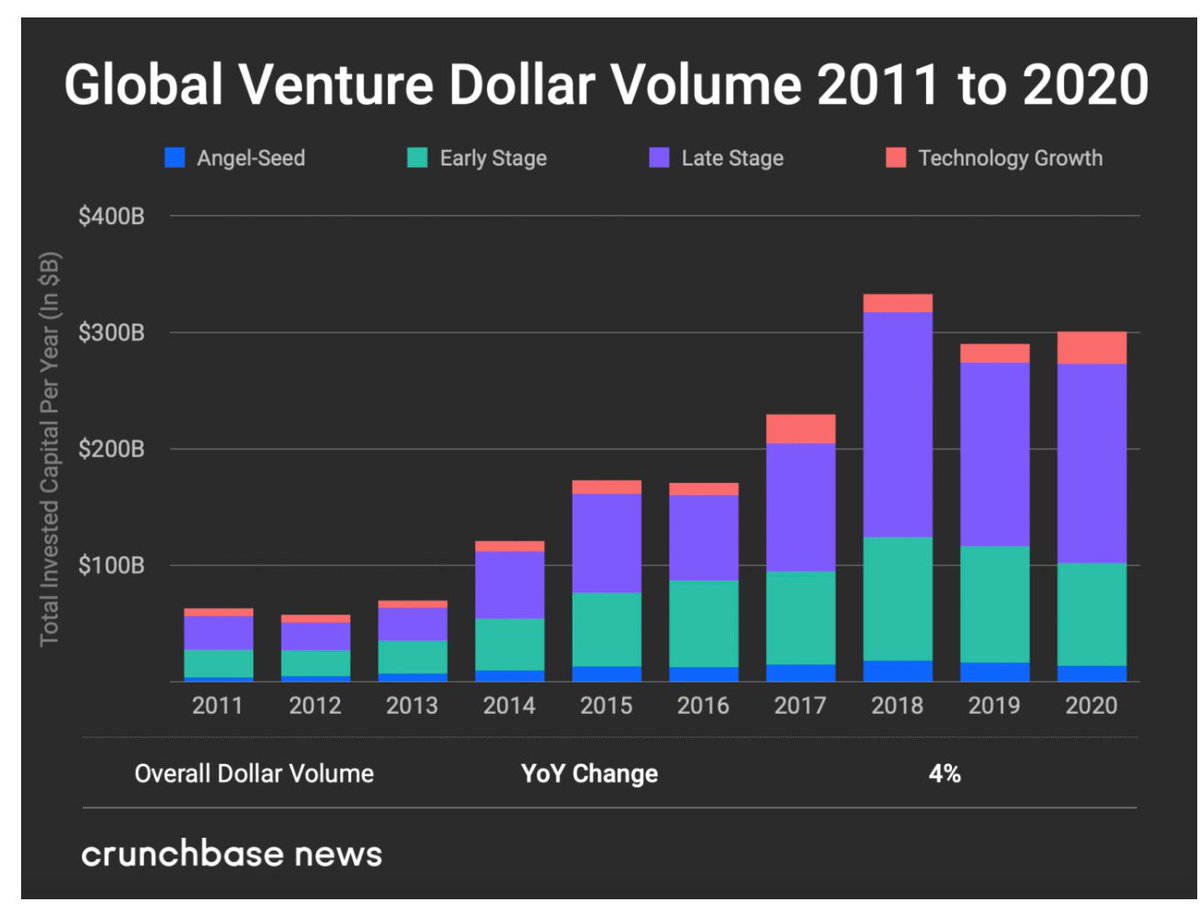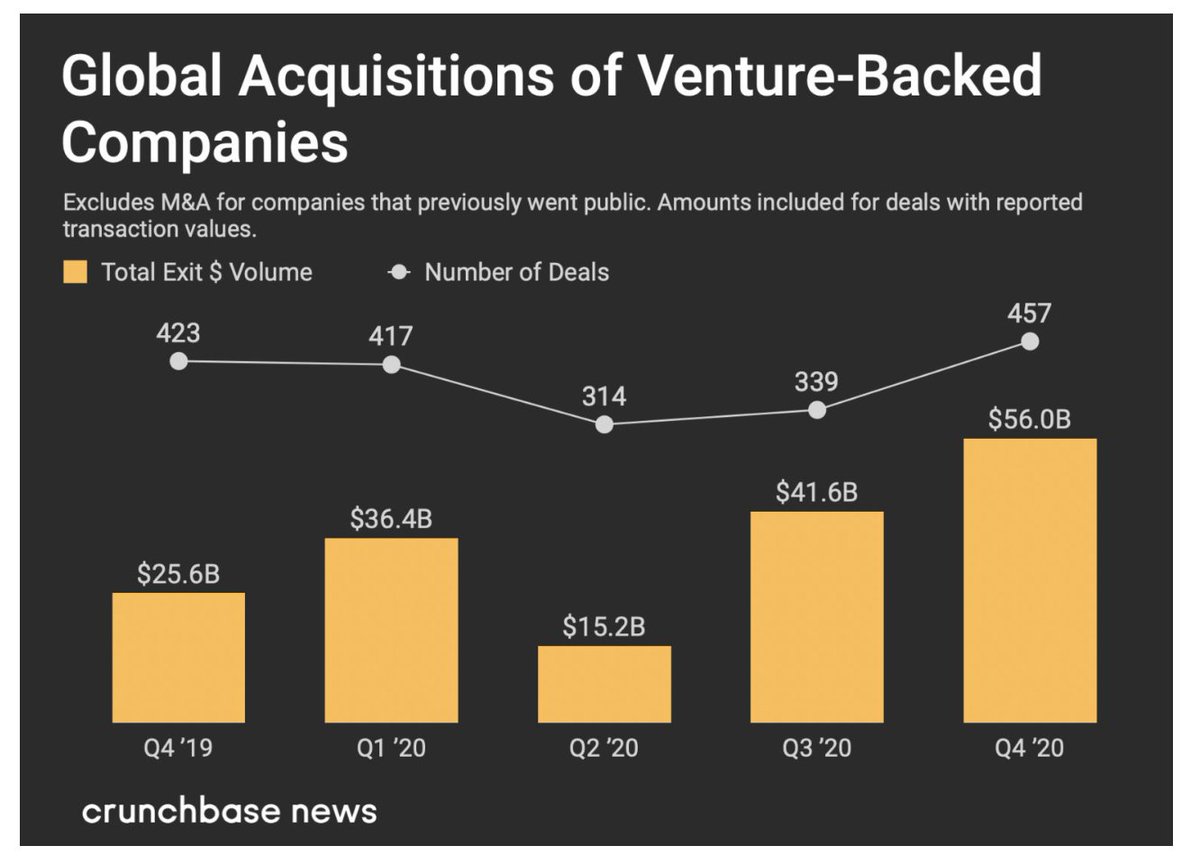
This Crunchbase report reveals 3 increasingly relevant trends in the VC industry.
1. The amount of $ invested in startups is picking up.
2. The $ is being invested in fewer deals/Cos.
3. Acquisitions of venture-backed Cos. are skyrocketing.
(1/2)
news.crunchbase.com/news/global-20…



1. The amount of $ invested in startups is picking up.
2. The $ is being invested in fewer deals/Cos.
3. Acquisitions of venture-backed Cos. are skyrocketing.
(1/2)
news.crunchbase.com/news/global-20…




Conclusion: VC firms are raising barriers to entry for new competitors and are also promoting the concentration of markets with their aggresive, profit-seeking exit strategies.
If the SEC continues to gratuitously discriminate between accredited and non-accredited investors, these trends will continue to grow, leading to increasingly concentrated markets, i.e., worse products/services, less innovation, fewer alternatives, etc.
2/
2/
By "protecting" retail investors, the SEC is effectively contributing to the concentration of markets and the downfall of competition, hence, affecting retail investors.
• • •
Missing some Tweet in this thread? You can try to
force a refresh







